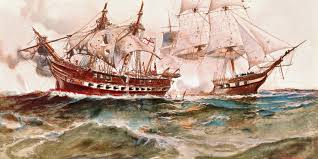Your basket is currently empty!
Introduction
On July 12, 1812, a significant chapter in North American history began as the United States officially declared war on Great Britain. This pivotal day saw American forces, led by Brigadier General William Hull, launch their initial offensive across the Detroit River, marking the U.S. invasion of Canada and the start of the War of 1812. This often-overlooked conflict, sometimes dubbed “Mr. Madison’s War,” would reshape national identities and alliances across the continent for years to come.
The Brewing Storm: Causes of the War
The decision to go to war wasn’t sudden; tensions had been simmering for years. A primary catalyst was the impressment of American sailors by the British Royal Navy, who forcibly conscripted U.S. citizens into their service, claiming they were British deserters. Additionally, British trade restrictions imposed through Orders in Council severely hampered American shipping and commerce, particularly targeting neutral trade with Napoleonic France. Further aggravating relations were British support for Native American tribes resisting American expansion into the western territories, fueling American desires for further territorial gains in British North America.
The Invasion Commences: July 12, 1812
General Hull’s forces, consisting of regular troops and Ohio militia, crossed into Upper Canada (present-day Ontario) from Detroit. They aimed to secure control of the region and demonstrate American military resolve. Upon crossing, Hull issued a proclamation, attempting to persuade Canadian inhabitants to abandon their allegiance to the British Crown, promising protection while simultaneously threatening severe consequences for those who resisted. However, this initial thrust was met with fierce resistance from British Regulars, Canadian militia, and their Native American allies.
Initial Challenges and Lasting Impact
Despite the initial invasion, Hull’s campaign quickly faltered. Facing supply issues, low morale, and effective counter-strategies from British General Isaac Brock and Tecumseh’s Native American confederacy, Hull retreated to Detroit and eventually surrendered the fort a month later. While this specific invasion was a strategic failure for the Americans, July 12, 1812, remains etched in American history as the definitive start of a conflict that would test the young nation’s resolve. The War of 1812 ultimately fostered a stronger sense of national identity in both the United States and Canada, redefined their borders, and marked the decline of Native American power in the Great Lakes region.
Explore more historical war machines on our Historic Battles site.

